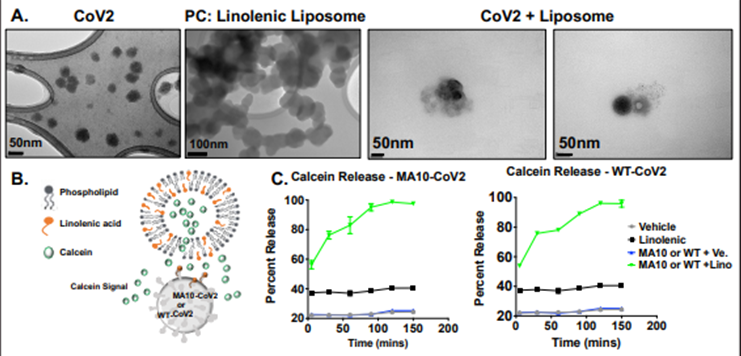Advantages:
- This research offers the potential to combat SARS-CoV-2 and respiratory viruses such as RSV and other coronaviruses.
- The research addresses various issues of the disease by targeting both the host and viral factors, including reduction in viral replication dampening the excessive immune response.
- The development of nanoformulations for delivering SCFAs and omega-3 fatty acids ensures a targeted and specific delivery, optimizing its effectiveness and minimizing potential side effects.
Summary:
In response to the global COVID-19 pandemic, this research aims to develop a targeted nanoformulation for combatting SARS-CoV-2 and other respiratory viruses. This approach leverages the intricate interplay between microbiome, diet, and immunological response to create a potent anti-viral therapy.
Our researchers hypothesized that a carefully designed nanoformulation, capable of sustained release of both short-chain fatty acids (SCFAs) and omega-3 fatty acids, holds the key to eliciting a robust antiviral response. These bioactive compounds acetate and linolenic acid have shown promise in resisting SARS-CoV-2 infection and improving disease outcomes. Furthermore, the research plan extends beyond the current pandemic, with an ambitious agenda to investigate the effectiveness of this therapy against other respiratory viruses, such as respiratory syncytial virus (RSV) and various coronaviruses.

Transmission Electron Microscopy (TEM) of SARS-CoV-2, linolenic acid liposomes, and CoV2 – liposome mixture. B. Schematic of SARS-CoV-2 interacting with calcein loaded liposome. C. Calcein release from linolenic acid liposomes incubated with UV inactivated SARS-CoV2 WT or SARS-CoV-2 MA10
Desired Partnerships:
- License
- Sponsored Research
- Co-Development